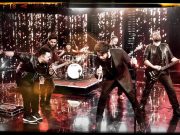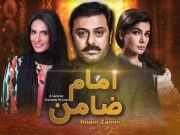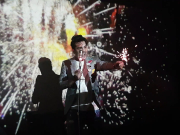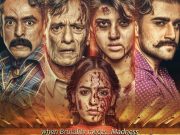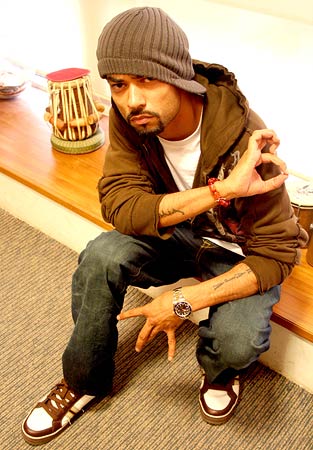 ‘Hollywood is looking up to Bollywood because of people like Akshay Kumar’
‘Hollywood is looking up to Bollywood because of people like Akshay Kumar’
Chandni Chowk To China may have ended up as a bad dream for Akshay Kumar but it wasn’t so for everyone associated with the film.Â
Rapper Bohemia made his Bollywood debut with this Nikhil Advani film, and received his share of acclaim. He even bagged another film — Nagesh Kukunoor’s 8×10 Tasveer.
Born Roger David in Karachi, Pakistan, Bohemia shifted base to California, where he started his career in street rap before Bollywood summoned. He spoke to Nithya Ramani about his changing destiny, and life as a Bollywood rapper.
How did you stumble upon Bollywood?
All credit goes to Akshay Kumar for having the vision and the open-mindedness to invite young talent to the film industry. Even Hollywood is looking up to Bollywood, and it’s all because of people like Akshay.
Akshay told me that he was a fan of my music. It came to me as a surprise that a huge star like Akshay Kumar was listening to my music. But now that I know him, it’s not as surprising.
Rap is a street form and people have different perceptions about it. Do you think your rap in CC2C and Tasveer has changed the perception?
I don’t think so. But I may have introduced this genre to a larger audience, who would normally put a stereotypical box over it. To me, rap gives me the opportunity to speak my mind. I consider myself as a street poet and then a rapper. I appreciate the poetry in the lyrics. Being able to put your thoughts to rhythm and a particular beat is called rapping. I have been learning rap ever since I moved to California when I was 12 or 13.
So I have a different vision of rap from the others. The audiences in India would normally discard rap. The same thing happened with pop music. People thought Bappi Lahiri was messing up with music but he was just introducing and changing people’s perception.
How did you develop an interest in rap?
It happened subconsciously. Growing up in the US, rap had a heavy influence on me. I wasn’t good in English. Rap helped me learn the language.
It also brought me into the culture, and made me feel like a part of it. Initially, I felt different — like being invited to a party full of strangers. Now, I have friends from the streets who I love and would even die for — they’re not even desi — and vice versa. That, to me, is rap culture. It unites people no matter what culture they come from.
Rap may not have the luxury of beautiful lyrics and melodious raag-raaginis. But it has a hard core street aspect to it.
Do you like other forms of music too?
My first love is ghazals. I love Jagjit Singh, Malkit Singh and Nusrat Fateh Ali Khan. I love Bollywood music also. Mukeshji was my favourite.
You write your own lyrics, compose the tunes and also play the instruments.
Apparently, yes (smiles). Akshay gave me direction in CC2C, how it was roughly based on his life and about his character Sidhu. So it was a nice background for the lyrics.
For Tasveer, Akshay told me to make a song similar to one of his favourite songs from my album, Pesa Nasha Pyaar. There is only a slight difference between the two songs.
I connected with his character from Tasveer because it was like me — dark and deep. So I could relate to it, and had fun writing the lyrics.
What tips would you give aspiring rappers?
I don’t think one can learn rap by watching others rap. You have to look deep within youself to be able to rap. For example, Sonu Nigam is a superb singer, and has great command over his talent. He never falls flat, he knows how to follow taals. But compare that with rap music, and you’ll be naked. You don’t have a melody or direction. All you have is rhythm and your voice. How you rap will depend on your personal relationship with yourself. If you cannot express yourself, you will have a hard time.
Tell us about your new album.
It is called Da Rap Star, and is a follow-up on Pesa Nesha Pyar. I have tried out a couple of new things like introducing new artistes — singers Devika and J Hind. There’s also a revised version of Malkit Singh’s Gur Nal Ishq.
Why don’t you rap in English?
Like I said, music is very personal for me. If I had approached music in a commercial way, I would have rapped in English. Writing the lyrics in Punjabi and putting it to a beat is my way of ventilation.
I thought people would call me crazy. But I like to inspire youngsters to write their own lyrics and make their own music.
When you hear Bohemia’s music, you are listening to my words, the music that I play, and how I felt about it. I hope to encourage kids to take art seriously. Learn your art form first, respect that before you take shortcuts, which is so easy in today’s age.
How have your parents reacted to your music and success?
My father is my guru. He used to play the harmonium. As a child, I used to come back from school and sit beside him and learn while my brothers would go out and play.
When I wanted to make my own music, I wanted to do it myself. I didn’t want to sound like other people. My family was a bit worried about me. But my father has always been supportive. He loved the fact that I was distracted by music and wanted me to do something in that field. But I don’t think he ever thought I would take it to this level. Now, he’s content.
What next?
Priyadharshan’s De Dhana Dhan. Producers are also approaching me now, and I’m looking at a few scripts.












